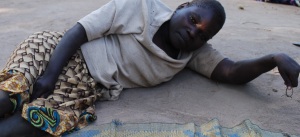What justice means to PWDs!
By Edson Ngirabakunzi
Have you ever taken time to reflect on what the term justice means in its real sense? Ordinarily, one would imagine it refers to fairness, impartiality, righteousness, reasonableness, even-handedness, honesty, integrity and uprightness. The list is endless.
Sufficing to note that, that inference of the term is largely general, but its application may fall short of its reality, depending on an individual’s interests. For instance, while most of the interpretation may favour persons without disabilities, it does not apply to those with disabilities.
Experience from NUDIPU’s work, as an umbrella organization of persons with disabilities has shown that the term Justice is farfetched from PWDs’ livelihoods, and may not hold water by any standard.
A baseline survey commissioned by NUDIPU early this year to assess the legal aid needs of persons with disabilities in Uganda indicates that 54% of PWDs whose rights were violated did not report their cases to any authority for various reasons including lack of awareness of their rights to access to justice.
Of those who reported violation of their rights to court for legal redress, only 34% were satisfied that they had received justice while 66% were unhappy with court verdicts.
The survey, which was conducted in the districts of Lira, Gomba, Kampala and Iganga to inform the implementation of Access to Justice Project, funded by Democratic Governance Facility, also revealed that there are few cases of public interest litigation on disability handled by courts.
Three cases— Electoral democracy for PWDs 2010, Physical inaccessibility to public infrastructures 2010 and Mental Health petition on abusive laws 2012, are still pending. It is not even clear when these could probably be handled.
The survey notes further that the human rights violations against PWDs was majorly on aspects such as freedom from exploitation that stood at 31.7% against Equality and non-discrimination that stands at 23%. The right to education was equally reported to have been violated.
It notes the non- implementation of the existing laws and policies as a major reason explaining why PWDs’ rights continuously get violated without or with minimal redress.
For instance, the survey generally revealed that across the country, District Service Commissions have not considered employment of PWDs. Those who find their way into the employment are denied promotion.
“I have been in public service in my ministry for 20 years and was denied promotion to senior position on grounds of disability,” the survey quotes a respondent from Kampala, as saying.
PWDs leadership at the district unions especially in Iganga district said sexual abuse against women with disabilities accounted for 80% of the injustices they face.
Where the perpetuators are arrested, they are hardly prosecuted because it has become a tradition for parents of the victims prefer settling such cases, out of court regardless of the victims consent. Interestingly, it is the local council leaders who often convince the parents of the victims to settle the matter out of court.
One other interesting issue to note is that confinement of PWDs as a means of protection by their care givers is equally rampant. This many times causes the person to develop other disabilities.
With such despondency, it is rather unlikely that the term justice applies in the life of a PWD. In fact, in every bit of their life literally exist an element of injustice— bit it in mobility, education, economic rights, let alone a right to have a family.
It is these, scenarios that prompted NUDIPU to develop a project ‘Access to Justice by PWDs,’ which is apparently helping PWDs realise the practical meaning of the term Justice. And already, results are yielding.
Already a number of PWDs have been supported in resolving family disputes as well as land matters among others. A number of advocates have been trained in disability equality and management. It is our prayer that a number of the advocates will appreciate and support disability related cases.
We would therefore, like to call upon government to among others ensure that the judicial systems recognise the challenges faced by PWDs while accessing justice and find appropriate strategies to addressing the bottlenecks.
Some of the strategies could include orienting the Judges, lawyers and police on disability rights, reform the laws to be disability friendly, ensure physical accessibility to court of law, access to court information and decisions in friendly formats among others. Too, PWDs should be sensitised on their legal rights and mechanisms for redress.
It is only then that PWDs will receive appropriate legal support hence making the term justice more meaningful to every Ugandan.
The writer is the Executive Director NUDIPU




Very well structured presentation.
Thanks for this knowledge and updating the masses.
stephen Niragire
Thank you for appreciating